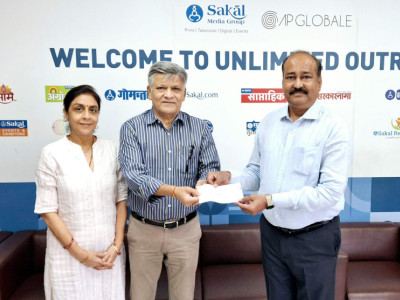Tax Benefits
 Non-Profit(NGO)
Non-Profit(NGO)
 Non-Profit(NGO)
Non-Profit(NGO)
Skills development for improving livelihoods opportunities for adolescent girls in rural Maharashtra
Institute of Health Management Pachod
Goal:
₹500,000
Donations:
0
Raised:
₹0
About the Organization:
Institute of Health Management Pachod (IHMP) has been working in the underdeveloped Marathwada region of Maharashtra, India for the past 42 years. IHMP is the executive body of the Ashish Gram Rachna Trust (AGRT), which is a Public Trust registered under the Bombay Public Trust Act, 1950. With an aim to enhance agency, the Institute emphasizes gender equity and rights-based approach in the implementation of programs and policy advocacy through its field programs, trainings and research activities.
Issue:
More than 50 percent adolescent girls are married before they reach the legal age at marriage in some districts of Marathwada. Most villages have schools up to 4th or 8th grades. If girls want to study beyond that, they have to go to neighboring villages, which have schools up to secondary or higher secondary level. Around 30 percent girls drop out from school, mostly after 8th grade. If a school exists in the village, parents send their daughters, at the most, for middle level schooling. There is a high drop-out rate for girls from the formal educational system, beyond that level. The majority of adolescent girls that drop out from schools are from socio economically marginalized families. Girls that have gone through Life Skills Education conducted by Institute of Health Management Pachod were able to negotiate with their parents to delay age at marriage and continue their schooling. LSE also resulted in an exponential increase in aspirations. However, even after completing 12 years of education and with raised aspirations, the girls find they cannot find employment nor are they able to improve their livelihood. Rural girls do not have access to 21st century or vocational skills.
Action:
Institute of Health Management Pachod (IHMP) conducts Life Skills Education (LSE) for adolescent girls (50 sessions conducted twice a week for 6 months). LSE has had a measurable impact on improving knowledge, increasing self-esteem and self-efficacy, increasing percentage of girls completing 10 and 12 years of schooling and increasing percentage of girls marrying after 18 years of age. There is evidence that LSE improves knowledge, mobility, negotiating, decision making and participation in group activities. Girls who have completed life skills education, have raised aspirations leading to a demand for vocational training. Girls who cannot study beyond 10th grade have expressed a desire to acquire skills in stitching as there is a ready market in their own village. Those that have completed 12 years of schooling have expressed the need for computer skills and acquiring the MS CIT certificate, which a large number of girls cannot afford. IHMP proposes to establish a school for providing professional sewing skills, which can train 30 adolescent girls a year in three batches. Meritorious girls that have completed 12 years of education and wish to acquire their MSCIT certificate will be given a scholarship of Rs 4200 for completing this course.
Impact :
Once the school for providing sewing skills is established 30 girls will be given training, their livelihood will be established in their villages. 30 meritorious girls who wish to continue higher education but cannot afford to complete the MSCIT course, will be selected for receiving scholarships for completing the MSCIT
Primary Cause :
Provide vocational training to adolescent girls, facilitating improved livelihood and a better quality of life
Project Location(s):
Jalna district in the Marathwada region, which is one of the most backward districts in Maharashtra
No results have been found

